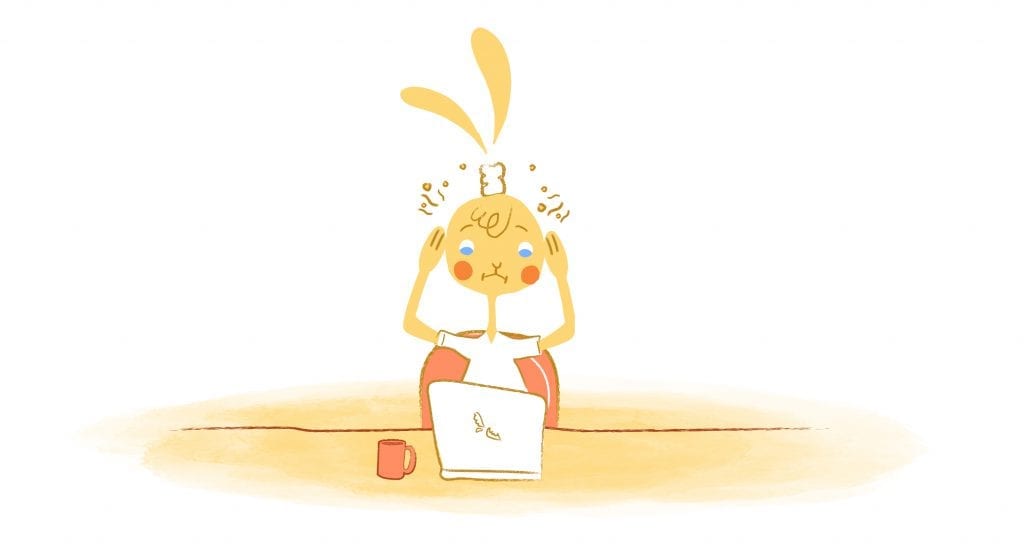

From carving symbols into stone to tapping a screen, humanity has always been driven by the need to organize time. What began with observing celestial cycles for farming and religious rituals has evolved into our modern, fast-paced world of meetings, deadlines, and a seemingly endless list of obligations. In this constantly shifting landscape, balancing competing demands is a universal struggle, but what if there were a better way?
As I’m sure you’re aware, we’re in the era of artificial intelligence (AI). Due to this, your calendar is no longer just a grid of boxes; it’s a dynamic partner that helps you optimize your schedule, predict your needs, and reclaim your time. With AI-powered calendars, you can find balance, focus, and control, even in a world full of distractions.
So, let’s dive into how AI is completely transforming the way we manage our most valuable asset: time.
From Record-Keeping to Real-Time Decision-Making
Traditional calendars have served as a record-keeping tool for many of us. You’ve likely used it to set appointments, note deadlines, and block out chunks of time. The problem? Life rarely goes according to plan. Whether it’s a traffic jam, a sick child, or an urgent client request, even the most careful planning can go awry.
AI-powered calendars, however, have changed the game. Rather than passively holding your schedule, they actively manage it. By gathering data from emails, messaging apps, location tracking, and even your past behavior, these systems are able to adjust in real time. Running late? Your calendar can alert attendees, reschedule the meeting, and suggest how you can make up the time lost.
There’s more to this than convenience — it’s stress reduction. Why? By automating your schedule, you no longer need to worry about rearranging your day.
Predictive Scheduling: Anticipating Your Needs
What if you woke up to a schedule that already knew what you needed before you even asked? This is possible thanks to predictive AI.
If you usually schedule focus work in the morning, your AI calendar will block that time before anyone else does. When you have a fitness goal, you can schedule workouts at times when you’re most likely to stick with them.
By learning your patterns, the calendar becomes proactive instead of reactive. As opposed to you fitting your life into the calendar, the calendar fits your life into the calendar.
Balancing Productivity and Well-Being
A big criticism of modern time management is that it turns people into machines. But the AI calendar of tomorrow is designed to prevent burnout, not speed it up.
In some newer systems, wearables connect health data, such as sleep patterns, stress levels, or steps taken per day. If you haven’t slept well, your AI calendar might push back that intense brainstorming session until later in the day. When it sees that a week is overburdened with meetings, it may schedule downtime to revive itself.
That is to say, it’s not just about managing your work, but also about managing your energy.
Smarter Meetings: Fewer, Shorter, Better
Meetings are notorious for wasting time. As a matter of fact, Atlassian has found that 72% of the time, meetings are ineffective.
What’s more, based on data from Fellow, the average employee spends 11.3 hours in meetings each week across all regions and job titles. According to the average percentage of workweek spent in meetings, that’s 28.3%.
These challenges are being tackled by AI calendars.
Here’s how;
- Automatic agenda creation. By scanning emails and documents, artificial intelligence can generate a meeting agenda in advance.
- Optimal scheduling. AI can find the best time for all attendees across time zones, eliminating the need for endless back-and-forth email exchanges.
- Real-time summaries. By using AI tools, you can transcribe and highlight key points during meetings, so you can leave with actionable items instead of fuzzy memories.
- Meeting replacement. There are times when canceling the meeting is the best course of action. Instead of sending a summary email, AI can suggest alternatives.
With AI calendars, we can save hours every week by rethinking the way meetings are scheduled and conducted.
Integration with the Tools You Already Use
Calendars don’t exist in isolation. Regardless of where you work or live, it connects with communication platforms, project management software, and personal reminders. This integration is taken a step further with AI.
You can use your AI calendar to;
- To block off focus hours, sync with Slack or Teams.
- Schedule project deadlines automatically with Asana, Trello, or Monday.
- Use Google Maps or ride-sharing apps to get travel times.
- To avoid conflicts between work and personal commitments, coordinate your calendar with the family’s.
Ultimately, with this seamless integration, you no longer have to juggle multiple platforms. In one intelligent hub, you can manage all your time flows.
The Rise of Voice and Virtual Assistants
It’s already becoming outdated to type events into a calendar. By speaking out loud, Siri, Alexa, and Google Assistant can be used to add appointments. However, tomorrow’s calendar takes things to the next level.
In addition to recording what you say, it can interpret your intent:
- By saying “I need to prepare for the investor pitch,” you might schedule two prep sessions and set a reminder.
- Whenever you say, “Let’s see Sarah next week,” it can suggest open slots, check restaurant availability, and even draft a dinner invitation.
With voice-driven scheduling, intentions can be captured in the moment without friction.
The Nomadic Workforce and Global Collaboration
Today, work is not confined to office spaces or even countries. In today’s global economy, teams are distributed across continents, projects span countries, and freelancers often juggle clients across time zones. To put it simply, managing this complexity manually can be exhausting.
Using artificial intelligence, calendars automatically adjust for time zones, suggest overlap hours for international meetings, and even flag cultural holidays or working hours that might need to be taken into consideration.
There’s no doubt that this is a lifeline for digital nomads and global teams.
The Ethical Side of AI Calendars
As with any power, there’s a responsibility. When your AI calendar pulls in health data, location history, and work communications, privacy becomes an issue. Who owns this data? How is it protected?
Leading companies are prioritizing transparency features, encryption, and user-controlled permissions. To ensure these tools empower people without exploiting them, we must make sure they empower them rather than exploit them. Tomorrow’s calendar shouldn’t just be smart — it should be trustworthy.
What This Means for You
It doesn’t matter whether you’re a freelancer, entrepreneur, executive, or trying to balance work and family. AI calendars are revolutionizing how we manage our time.
Unlike working around your calendar, the calendar works around you. As a result, friction is reduced, needs are anticipated, and productivity is balanced with well-being. Most importantly, it allows you to focus on the things that really matter — your goals, your relationships, your growth.
In the near future, time management won’t be about doing more. Doing better is the goal. And, AI is leading the way.
FAQs
Will AI calendars replace human decision-making?
No.
The purpose of AI calendars is to assist, not replace. Although they handle logistics and optimization, you retain control over priorities and choices.
Do I need expensive software to access these features?
Not necessarily.
There are already many AI calendar features in programs like Calendar, Google Calendar, Microsoft Outlook, and Notion. It’s possible to upgrade to a premium version or get a specialized application that offers more advanced features.
How does an AI calendar know my preferences?
You can do this by analyzing your past behavior, routines, and settings. Alternatively, you can manually adjust preferences to ensure the calendar reflects your preferred settings.
Is my personal data safe with AI scheduling tools?
It depends on the provider. Make sure the tool you choose has strong encryption, transparent data policies, and customizable privacy settings. You should also always review what data you are allowed access to.
Will AI calendars make me more productive — or just busier?
It’s not about packing more into your day. Using an AI calendar allows you to prioritize, focus, and maintain balance so that you can accomplish more of what’s really important without burning out.
Featured Image Credit: Photo by Towfiqu barbhuiya; Pexels











John Rampton
John’s goal in life is to make people’s lives much more productive. Upping productivity allows us to spend more time doing the things we enjoy most. John was recently recognized by Entrepreneur Magazine as being one of the top marketers in the World. John is co-founder of Calendar.